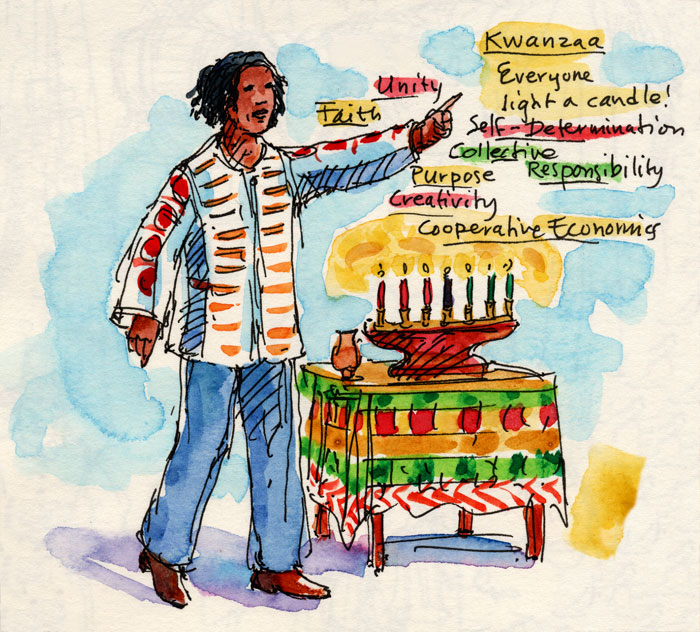December 26th is the first of the seven days of Kwanzaa, a festival created in 1966 as a celebration of African cultural and historical heritage. Born of the Civil Rights movement, it was originally proposed as an alternative to Christmas for African-Americans who preferred not to follow the religious traditions of the culture that had uprooted and dispossessed their ancestors. However, for many families it has come to be an additional, rather than a replacement, celebration.
Kwanzaa derives from a Swahili phrase meaning “first fruits,” and its creation was inspired by African harvest festivals, but “fruits” carries a larger meaning beyond the literal, encompassing as well the blessings of family, faith, work, and cultural heritage. Each of the seven days has a special theme and is celebrated accordingly, through openly renewed commitment to significant values, storytelling, the exchange of gifts, special foods, and appreciation of traditional African art and handcrafts.
Kwanzaa has been labeled disparagingly an “invented” festival, but this criticism seems both mean-spirited and short-sighted. Every festival we celebrate was “invented” at some point as the outward manifestation of a people’s beliefs, hopes, and dreams. Somebody had to be the first to drag an evergreen branch indoors as a reminder of the the eventual return of spring and new life.
This sketch is from the Smithsonian’s wonderful Seasons of Light at Discovery Theater, which each December describes and dramatizes winter festivals of light from many cultures.

